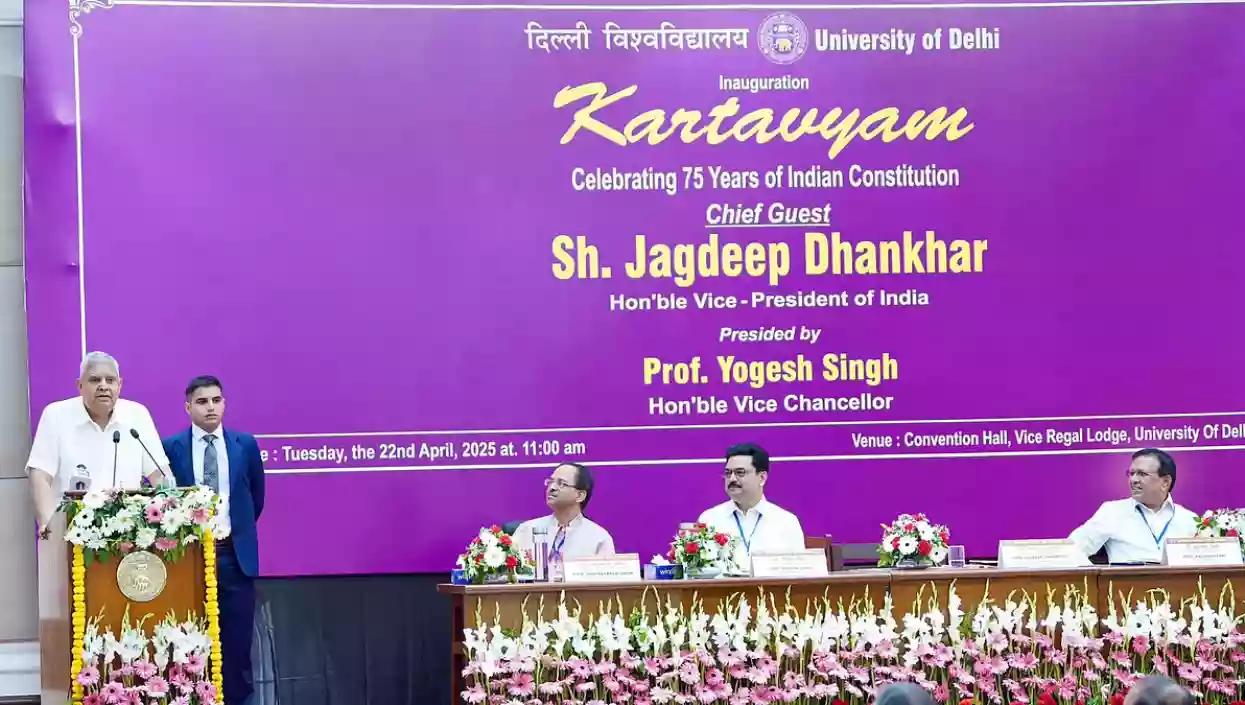Protests erupt outside Kasba Police station as 3 arrested in alleged Kolkata college gang rape
.gif)
.gif)

Vice President Jagdeep Dhankhar on Tuesday once again expressed sharp concerns over what he described as judicial "overreach," strongly asserting the supremacy of Parliament and the ultimate authority of elected representatives. Speaking at Delhi University during a Constitution Day event, Dhankhar reiterated that the Constitution does not envisage any authority above Parliament.
"Elected representatives are the ultimate masters as to what constitutional content will be," he said, emphasizing that public representatives are held accountable through elections, while unelected institutions must remain within their defined constitutional boundaries. "Parliament is supreme. It is as supreme as every individual in the country," he added.
Dhankhar's latest comments come amid ongoing tensions between sections of the executive and judiciary. Recently, the Supreme Court had set a three-month deadline for the President to decide on bills reserved by governors, a move that drew sharp criticism from Dhankhar, who warned against the judiciary acting as a "super parliament" or encroaching into executive functions.
The Vice President further stressed that democracy is for the people, and the will of the people is expressed through elections. "Every part of 'We the People' is an atom in democracy. This atomic power is reflected during elections," he stated during his address, reinforcing the role of electoral accountability in governance.
Last week, Dhankhar had also raised concerns over judicial immunity and the need for structural reforms within the judiciary, following allegations related to a Delhi High Court judge. He went so far as to describe Article 142 of the Constitution as a "nuclear missile against democratic forces," demanding a deeper look into its use in significant constitutional matters.
The Vice President’s repeated remarks signal a growing call from sections of the political leadership for a clearer separation of powers and greater restraint by the judiciary, especially on matters that traditionally fall within the legislative and executive domains.